Dear Darrel,
Thanks for reading my book The Quest: Exploring Creation’s Hardest Problems and taking time to write to me. I’m very grateful for your friendship, and I’m thankful you wanted to read and respond to the book. To be honest, much of the book has been shaped by our relationship. Our time together has made me think much more deeply and broadly about Genesis and creation and my own understanding. You’ve made me reconsider some ideas that I thought were important, but in other ways, you’ve convinced me even more that I’m on the right track. You’ve made me a better young-age creationist. So thanks for that!
As I read your letter, I was reminded again of how our differences influence our perceptions. While I wrote The Quest, I felt nervous every time I addressed the Bible. Interacting with you and studying the works of evolutionary creationists and theistic evolutionists has given me a much more sophisticated and nuanced approach to the text of the Bible. I’m not nearly as naïve about Scripture as I was ten years ago. Even as I articulated my commitment to young-age creationism, I needed to express the joy of studying many unanswered questions about the Bible. I devoted an entire chapter to “Questions from Genesis,” because I wanted to emphasize that the quest to understand must apply to Scripture just as much as to creation itself. I raised so many unanswered biblical questions that I am certain the book will shock some creationists. That’s what I was nervous about: balancing communicating my commitment as a young-age creationist with my uncertainty about many other biblical and theological issues.
You don’t really mention that, though, and I thought it would have stood out. I’ve read your letter and talked to you in person about this, and you seem to perceive me as having certainty in the “literal” interpretation of the Bible and uncertainty about the science. Perhaps it’s a matter of perspective. From my perspective, I’m something of an unusual young-age creationist, at least in the public sphere (I know plenty of creationists who think like I do),It still troubles me how much our perspectives color the way we approach this issue and how we perceive the other side. We need to pray about that. and my uniqueness motivates much of my public speaking and writing. I don’t consider the Bible to be clear and easy to understand on every issue related to creation, even though I think it’s clear enough. Looking from your perspective though, where the science is so decisive, it seems like I’m just throwing away a successful career in science for the sake of one dubious interpretation of Genesis. It still troubles me how much our perspectives color the way we approach this issue and how we perceive the other side. We need to pray about that.
Let’s leave that point aside for the moment, because you’ve raised an incredibly important question, and I really like how you’ve phrased it. How will I know I’m wrong? You see young-age creationist science as a hodgepodge of nonsense and inconsequential discoveries that have no hope of replacing the current old-earth, evolutionary paradigm. Doing scientific research on the open questions, inconsistencies, and systematic errors of conventional science is a waste of time to you. These aren’t hard questions. They’re impossible.
I’ve been thinking about your question for years. I actually started a series on my blog back in 2012 called “What would convince me?” to address this very question. I never finished that series because I never figured out how to answer the question back then. My thinking has matured since then (thanks in part to you), and now I know what my answer should be. I want to look at Romans for guidance on this.
In Romans 14, Paul addresses divisive issues of conscience in the church. Since Paul at the time had not visited Rome, I take this advice as the general advice he might give any early church. He mentions two specific issues, abstaining from certain food and esteeming certain days, which I suspect may refer to the differences between Gentile and Jewish believers. Keeping a kosher diet or remembering the Saturday Sabbath no longer concern most of us Gentile Christians, but I can certainly see how a first-century Jewish believer would find these to be important interpretations of the Torah that they still needed to believe. That sounds familiar.
Paul’s first piece of advice is that we should not judge (condemn) those who by conscience and conviction choose one interpretation. That goes for Gentiles mocking Jews for their strange customs, and for Jews condemning Gentile believers for not keeping the Law of Moses. As Paul says, “Who are you to pass judgment on the servant of another?” (Rom. 14:4). Paul then says that we must not cause others to stumble by exercising our convictions. In other words, don’t create obstacles to the gospel by your own doctrinal preferences. Instead, Paul says we should “pursue what makes for peace and for mutual upbuilding” (Rom. 14:18).
I think this chapter has a lot to say about how we as believers ought to approach the issue of creation and evolution, but that’s a subject for a different letter.How we understand creation is also intertwined with how we understand the rest of Scripture, from which we Protestants gain most of our theology. You and I have already discussed these things at great length. For the question at hand, how will I know if I’m wrong?, I think this chapter finally gives me the answer I’ve been looking for: “whoever has doubts is condemned if he eats, because the eating is not from faith. For whatever does not proceed from faith is sin” (Rom. 14:23). If I am to change my position on creation and evolution, I must do it in faith.
To be perfectly clear, I will not change my mind because I’ve been convinced by scientific evidence or by biblical interpretation, as if this were merely an intellectual puzzle to solve. The doctrine of creation runs deeply through Scripture and Christian theology. It may not be the gospel itself, but creation is entangled with the gospel through Paul’s teaching on Adam. How we understand creation is also intertwined with how we understand the rest of Scripture, from which we Protestants gain most of our theology. Changing my view on creation requires a reconfiguration of a large part of my understanding of theology, which is not something I take lightly.
You might argue that the science of evolution is entangled with the very foundation of biology and geology and that science cannot be science without evolution. Obviously, I don’t agree with that at all. I see a great deal of flexibility in science, which you do not. Over the centuries, many theories that seemed so obviously true were abandoned for better models, and I have no doubt that trend will continue. Humanity has barely begun to explore God’s creation. We can hardly imagine what discoveries are coming right around the corner.
I also won’t change my mind because I have lingering doubts about this or that issue. I don’t want to adopt a position merely as a way to escape intellectual anxiety. That’s not faith at all. That’s acting in doubt. Every position has unanswered questions. No one gets to understand it all here and now.
No, this is a matter of conviction, and it always has been. I don’t hold my current position because I’m stupid or careless or because I haven’t considered alternative models.Most importantly, if I changed my convictions, it would not be a change motivated by regret or sadness or doubt but a change motivated by joy from seeing the light of God shining through his Word and through his creation. It must be a change of faith. I hold my position out of conviction and faith, and if I change my mind (and as far as I can see, that’s a big IF), it will be through the conviction of the Holy Spirit. I expect that conviction might come through further study of the Bible, theology, and the history of Christian interpretation, which you know I’m already doing. Could there be scientific breakthroughs that could contribute to changing my conviction? There certainly could be, but any such breakthroughs would have to be more than just another fossil or genome.
Most importantly, if I changed my convictions, it would not be a change motivated by regret or sadness or doubt but a change motivated by joy from seeing the light of God shining through his Word and through his creation. It must be a change of faith. And since faith comes by hearing the Word of God, the only way I can see to move forward is to continue our study of creation and the Word of God, which is the point of The Quest.
I hope this is true of you too. After all, what would convince you that you’re wrong about your position (which I’m sure you are)? I hope it would be faith. Honestly, I would be thrilled if you did want to switch to my team, but it’s mostly because our differences are kind of like an open wound. I really wish we were not so thoroughly different, but I don’t want to convince you with my eloquence or dazzle you with some sort of scientific study. I want you to have the strong faith of conviction as I do. I don’t just want to eliminate our differences. I want us to find our unity and identity in Christ.
Ultimately, I don’t think my response here will satisfy you. I cannot give you a formula for changing my convictions, any more than you can give me a formula for changing yours. In a sense, this is the central conundrum of Protestantism, where divisions and disputes arise over strong, personal conviction. I doubt we’ll solve this problem ourselves, now that 500 years have passed since the Reformation. Perhaps the best we can do is learn how to disagree well, which brings me to our new book, The Fool and the Heretic.
Books like ours that describe contrasting viewpoints already fill library shelves, and plenty of them focus on creation and evolution. I also know of several of books that focus on relationships between creationists and evolutionists. I even have copies of the letters exchanged by Frank Marsh and Theodosius Dobzhansky back in 1944 and 1945. Most of these exchanges end with uncertainty, the authors “agree to disagree,” and the issue continues to divide us. Why bother writing (or reading) yet another of these books?
To me the answer is that we’ve found something more important than just stating (yet again) our positions. We’ve found Jesus in the midst of our discord, which I never really expected when we began. With Jesus at our side, our relationship is still going and still growing. Our book is just a window into part of our journey together. The intrigue for me is where we’ll go next. You and I both know that we’ve barely begun to explore what God has for us. We need to continue our journey together, and we need to bring others along with us. We need to start planning The Fool and the Heretic Volume 2! We have a rare opportunity to completely transform the way the church addresses a contentious issue, and I think we have a responsibility to carry on what we’ve started. I know you’ll join me. I hope others will too.
Sincerely,
Todd
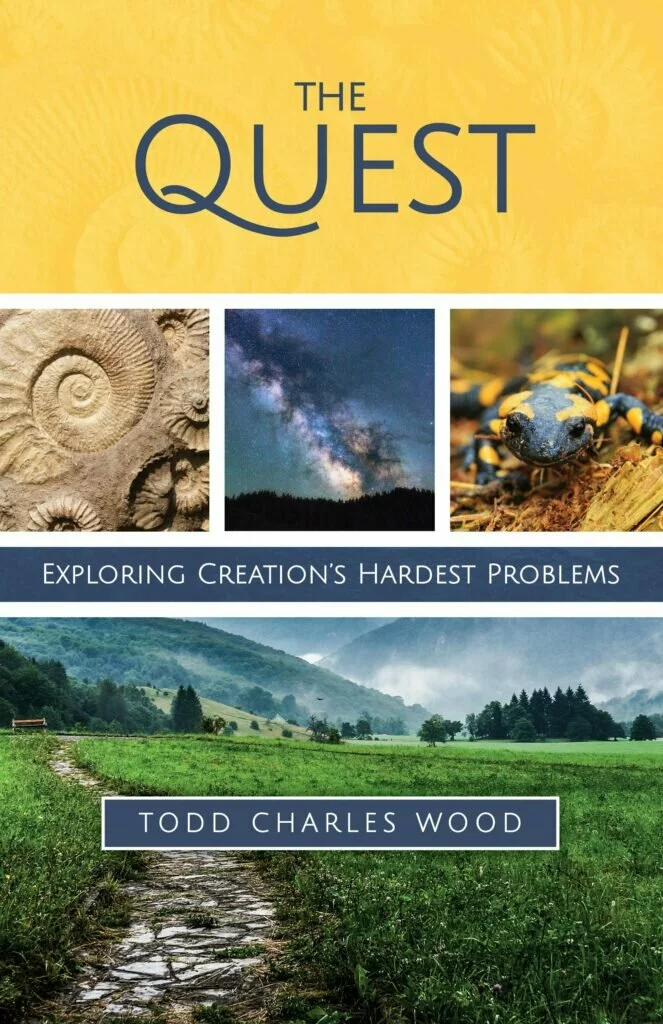
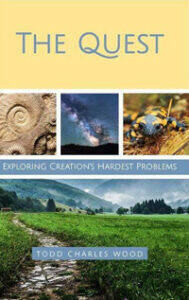
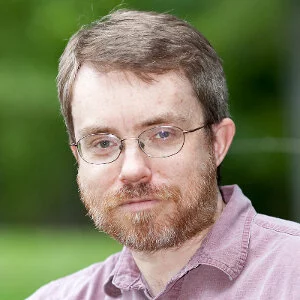
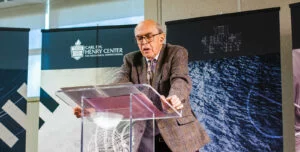
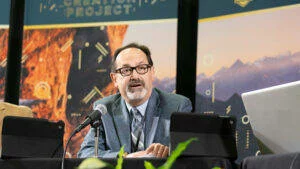

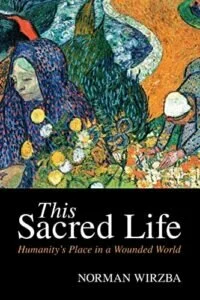
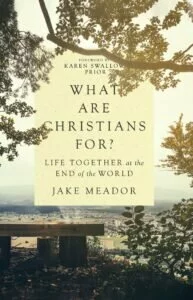
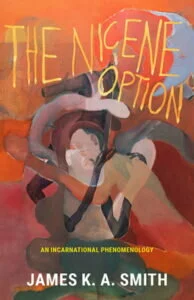
Comments
Be the first one to make a comment!